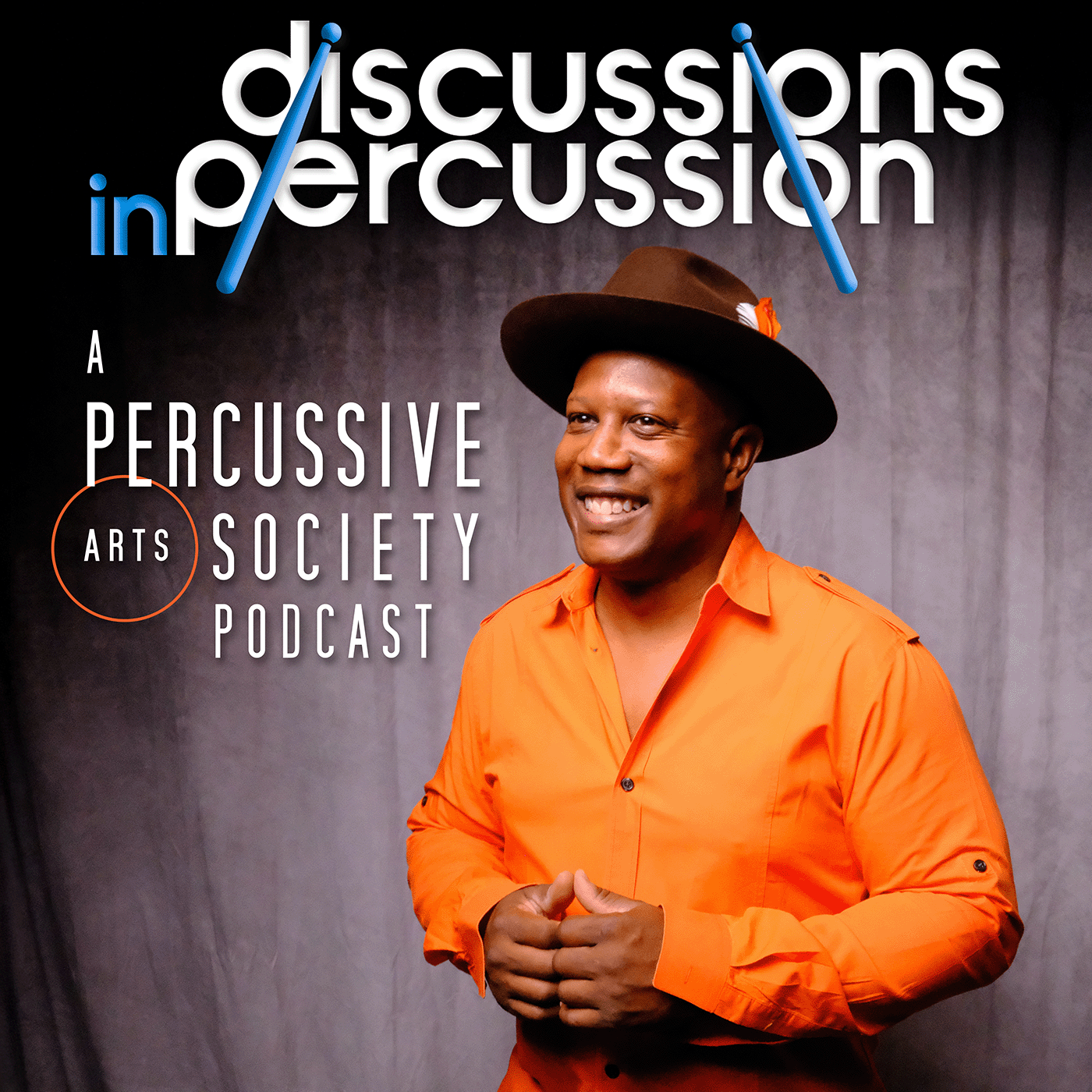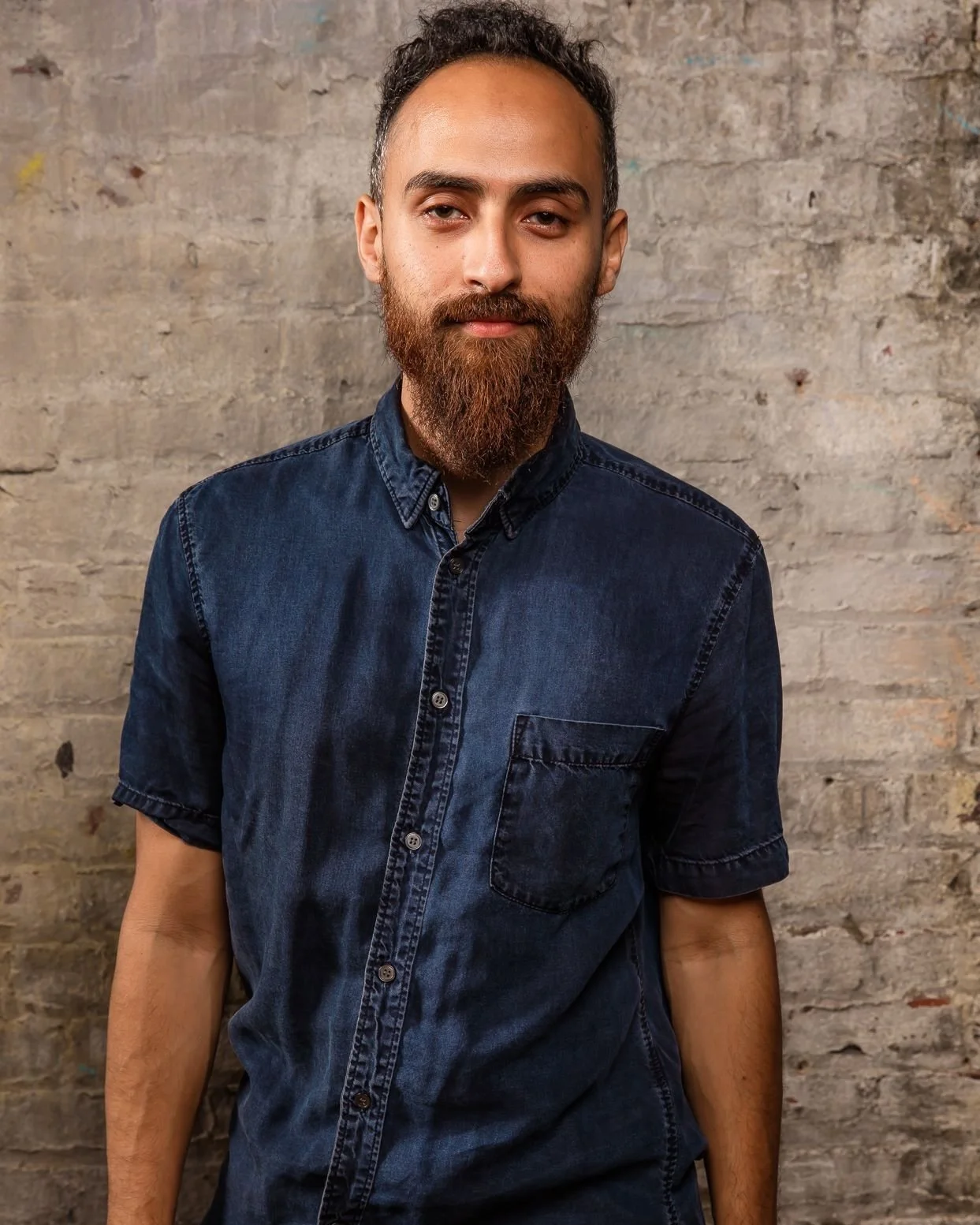#241 Miguel Merino- Percussionist and Lyrist for the Otaak Band and More!
This episode is sponsored by Dream Cymbals.
The photo of Miguel was taken by Julia Reardin.
Miguel Merino wears the various musical hats of drummer, producer, composer, and lyre player. Appearing as Otaak Band, he takes this ancient instrument far outside the folkloric tradition to produce unique, contemporary sounds. In addition to the typical 5-string lyre, Miguel also plays a variety of lyres and harps with up to 25 strings, which offer a huge range of musical possibilities. In addition to his own composition, Miguel is a dedicated student, researcher and collector of lyre instruments.
Happy Birthday!
Happy Birthday to Terri Lyne Carrington. Terri (born August 4, 1965) is an American jazz drummer, composer, producer, and educator. She has played with Dizzy Gillespie, Stan Getz, Clark Terry, Herbie Hancock, Wayne Shorter, Joe Sample, Al Jarreau, Yellowjackets, and many others. She toured with each of Hancock's musical configurations (from electric to acoustic) between 1997 and 2007.
In 2007 she was appointed professor at her alma mater, Berklee College of Music, where she received an honorary doctorate in 2003. She has won three Grammy Awards, including a 2013 award for Best Jazz Instrumental Album, which established her as the first female musician to win a Grammy in this category.
Terri serves as Founder and Artistic Director of the Berklee Institute of Jazz and Gender Justice and The Carr Center in Detroit, MI. She also serves on the Board of Trustees for The Recording Academy, Board of Directors for International Society for Jazz Arrangers and Composers and the Advisory Board for The History Makers and New Music USA.
Gig Alerts
Damon will be playing at Cisco Brewery on Nantucket Tuesday and Wednesday August 10th and 11th with Billy Ruegger from 4-7pm. Then with Norbert Leo Butz at Feinstein's/54 Below in Manhattan August 19th-21st.
For more info on the New Orleans Jazz Fest postponement, click HERE.
Social Soundbyte
Friend of the show Miles Bould, released a ten track solo percussion album starting from one solo performance then working through to nine more performances adding one percussive component on each composition. You can go check it out over on Bandcamp.
Educational Spotlight
Mark Wessels and the Zildjian Company, came out with a drumset method that includes a FREE E-Book.
PAS (Percussive Arts Society) is excited to announce the first Region Day of Percussion! Regions will rotate yearly giving everyone around the country the chance to find an event near them!
SAVE THE DATE – East, Central, and West Region Day of Percussion™ information coming soon!
Iconic Recording
The iconic recording this week is “Ritmo Mozambique” by Pello El Afrokan Y Su Ritmo. IN 1963, Pedro Izquierdo, known as Pello el Afrokán—who recently passed away—created the mozambique, one of the hottest and most debated modern rhythms on the island.
In the wake of Eduardo Davidson’s pachanga rage, like a wizard or African griot Pello produced a primitive or more authentic sound of tom-tom and metal drums. It was like a call from the earth which scandalized many academics, but won public acclaim. It was a renewal of the conga lines dating back to the colonial period, and had the crowds dancing down the streets.
El Afrokán was born in 1933, a time of hunger and desolation for Cuba with the toppling of dictator Machado. He was the grandson of Mandingos who reproduced the drumming and rhythms of Africa on the island. "That’s the blood running through my veins," Pello told me when we met in his musical enterprise, named after Ignacio Piñeiro. "My father was one of the first percussionists in Belisario López’ band. I’m a cousin of Mongo Santamaría and the kings of percussion used to visit my house."
The creator of the mozambique started playing wherever he was needed, as well as working as a stevedore on the docks in his Havana barrio of Jesús María. He did commercial jingles for CMQ radio and in 1959 founded his own group, playing at the Havana’s mecca of cabaret, the Tropicana.
In 1962 he was already experimenting with the great tribe which would be the talk of that decade. Meanwhile, he also imparted his musical knowledge at the National Art Instructors’ School.
"The mozambique is played with 12 conga drums, two bass drums, three bells, a frying pan, four trumpets and three trombones. An innovation. The percussionists were exceptional, that’s my specialty. I created a set with five conga drummers."
The rhythm is an Afro-Cuban fusion that Pello called a stew: Abakuá, Yoruba, Congo, Carabalí and Jiribilla. Naturally, the rhythm is linked to a dance whose steps were devised by El Afrokán himself and later stylized by choreographer Guanari Amoedo. "The mozambique is walking, walking in time," its inventor defined it.
"I sang in Pello’s tribe," composer Evelio Landa recounts, "and I know the way in which he put together his compositions, without arrangements, with a drummer’s sensibility. But the whole thing worked."
Pello introduced the mozambique at the University of Havana and it had an enthusiastic response from the youth. It had its television debut in July 1963, when the Beatles were invading the world without permission. With great daring, Pello served up the mozambique as a wall of contention before the avalanche of pop music.
In the Radio Progreso studios and at that year’s carnival, the mozambique was an explosion only comparable to the Cuban salsa boom. Surviving film footage reveals that the mozambique carried away a sea of people. The legend began and is still resonant.
With Pello, the mozambique traveled as far as Paris’ Olympia Theater in 1965, touring half the world. In 1979 it slipped into the Carnegie Hall and Japan. Stars like Eddie Palmieri, Carlos Santana, Issac Delgado and many others recorded cover versions.
Pello was laid to rest on September 12 with full Abakuá burial rites and the sound of the mozambique performed by grandson Omar and his group.
You can see an additional video of Pello playing Mozambique by CLICKING HERE.
In addition, the fine folks over at Conga Chops (dot com), have released a lesson on how to play Mozambique.
Music News
Following a Lollapalooza festival where attendees were required to show proof of vaccination or a negative Covid test, Live Nation announced Friday that they will allow touring artists to choose whether to implement similar mandates for their upcoming concerts. -Article
Offspring drummer Pete Parada is kicked out of the band for not getting the vaccine. But he says he has a legitimate medical issue, and his doctor has advised against it. -Article
YouTube has just announced a new feature they call Super Thanks, and it could be a game-changer for artist monetization on the platform. Disc Makers CEO Tony van Veen answers the following questions:
-What is Super Thanks, and how does it monetize?
-Does YouTube take a cut, and if so, how much?
-What do you need to do to get set up?
-How do you maximize Super Thanks revenues?
Miguel Merino Interview
The song leading into the interview is called “La Ya Habibi” from the new album ‘Dunya-al Ushaq’ by Ali al-Abady and Otaak Band which can be found on Bandcamp.
The podcast begins with Olympic talk and other Miguel Merinos.
Miguel attended the University of Miami.
Damon and Miguel talk about The Star of Indiana and Blast! Shout-out to Jim Mason and Frank Sullivan.
Miguel talks about his early days of music and his family.
Shout-out to Steve Rucker for helping get Miguel to Miami.
Damon brings up Kenny Aronoff at IU.
Damon and Miguel talk about folkloric types of Merengue drumming like this or like this.
They also talk about the protests in Cuba.
Miguel talks about a hang on a rooftop of an apartment building in central Cairo. Ahmed Said Abuamna, a professional singer and ethnic Beja from Sudan, was visiting a friend who lived in a shanty on the roof of the hundred-year-old building. After gigging one night with some friends, Miguel, was introduced to Abuamna by their mutual, rooftop friend and the two instantly clicked.
Merino moved to Egypt to play with Egyptian, Sudanese, and Ethiopian musicians. Before meeting Abuamna, he'd already begun to learn the masankop--an instrument similar to the banjo--as well as local hand drums, and for the next two years Abuamna began to school Merino in the traditions of lyre music. The duo recorded together under the moniker Otaak Band in 2012 (Otaak is the Beja word for "the man") -Article
Miguel talks about the tanbūra that he plays. The tanbūra is a bowl lyre of the Middle East. It takes its name from the Persian tanbur via the Arabic tunbur (طنبور), though this term refers to long-necked lutes. The instrument plays an important role in zār rituals. The instrument probably originated in Upper Egypt and the Sudan and is used in the Fann At-Tanbura in the Persian Gulf Arab states.
Miguel explains some about the Beja people.
This is the 1619 Project episode that Damon was referring to.
This is the Bela Fleck Documentary that Miguel was referring to.
This is the BBC History of Africa documentary that Damon brings up.
Miguel had some nerve damage from playing. Steve Davis helped Miguel work on the mechanics of his playing.
Miguel emphasizes warming up and stretching before and after playing as well as staying loose and relaxed during playing.
Damon talks about different stroke types including Moeller technique or even elements of the Hinger timpani grip. Miguel talks about trying to emulate Bill Stewart.
Damon and Miguel talk about Eastern African percussion instruments like: the Riqq, Darbuka, Sagat (Zills), Daf, Katem and Sistrum.
Miguel mentions the singer Wa’el El Fashny also playing the riqq.
Miguel talks about living through Covid in Spain with his family and then returning to Egypt.
Shout-out to Michael Olivera and Reinier Elizarde Ruano (El Negrón).
Miguel is preparing to record and bring new challenges to his group in the area of improvisation with Walid Abdou.
Miguel talks about how he approaches improvisation with some of the same guidelines of using any language.
If you are looking to help the Otaak Band with funding to be able to document and share globally these styles of music and rhythms, please CLICK HERE.
Shout-out to the aforementioned Steve Davis and Steve Rucker.
Additional shout-out to every other drummer named Steve.
You can follow Miguel and his band on their Website, Facebook (band page), Instagram, and YouTube.
The song leading out of the interview is “El Walad Da” from the new album ‘Dunya-al Ushaq’ by Ali al-Abady and Otaak Band which can be found on Bandcamp.








